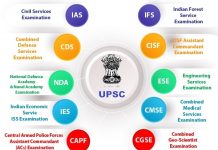Material science course in India
Materials Science (also mentioned to as materials science and engineering) is an inter-disciplinary topic that includes the study of all materials starting from a glass or a piece of sport tackle to those used in medicine and aerospace. The subject discovers the structure and design of any material and how it can be used in the best way.
Separately from this, the field of materials science also emphases on creation of new materials on the basis of diverse engineering requirements. The materials shaped through this field of science are used for a diversity of purposes and range from nanotechnology to progressive polymers.
Through their indulgent of how materials work, materials scientists or engineers make new materials for new applications and develop existing materials to recover performance.
Materials science is a broad field of education and contains sufficiently of opportunities for scholars who wish to build their career in it and its connected technologies.

Required Skillset for Materials Science
All applicants looking to build their profession in the field of materials science should possess the below-mentioned skillset and personalities:
| Skillset for Materials Science Applicants | |
| Analytical determined of mind | Problem-solving skills |
| Organisational skills | Communication skills |
| Hardworking | Decision-making skills |
| Scientific knowledge | Technical skills |
| Inquisitive mind | Detail oriented |
| Mathematical aptitude | Planning abilities |
| Research skills | Creativity and innovation |
Materials Science: Eligibility Criteria
Materials science can be followed by applicants at undergraduate, postgraduate and doctorate levels. Given further down are suitability criteria for all levels of materials science courses:
UG Level: Applicants should clear Class 12th in Science field with at least 50% – 60% aggregate grades.
PG Level: Applicants should clear graduation rather in materials science with minimum 50% – 60% aggregate grades.
PhD Level: Applicants should clear post-graduation in materials science or a connected discipline with least 60% – 75% marks. Applicants who clear GATE (with least 90 – 95 percentile score) or CSIR UGC NET and had Mathematics as a obligatory subject in graduation are also sometimes qualified to apply.
Note: Materials science suitability criteria stated above might vary depending on the policy of the university in which a applicant is applying for admission.
Course curriculum for Materials Science: Material science course in India
There are diverse science and engineering courses obtainable in materials science. Though, the two popular materials science options include: BTech Materials Science & Engineering and MTech Materials Science & Engineering. Given further down is an overview of the subjects educated in both the courses:
| BTech Materials Science & Engineering | |
| Nature and Properties of Materials | Thermodynamics and Phase Equilibria |
| Rate Processes | Structure and Characterization of Materials |
| Introduction of Biomaterials | Phase Transformation |
| Mechanical Behavior of Materials | Electronic and Magnetic Proeprties of Materials |
| Physical Metallurgy Laboratory | Mechanical Behaviour Laboratory |
| Principles of Metal Extraction & Refining | Materials Processing |
| Functional Materials Laboratory | Process Engineering Laboratory |
| Manufacturing Processes Laboratory | Science and Technology of Thin Films and Device Fabrication |
| Energy Materials and Technologies | Electronic Devices and Characterization |
| Electro-Ceramic Materials and Applications | Materials Science Technologies for Application in Life Sciences |
| Iron and Steel Making | Selection and Design of Engineering Materials |
| Powder Metallurgy | Solidification Processing |
| Heat-Treatment and Surface Hardening | Symmetry and Properties of Crystals |
| Interfaces and Material Properties | Microscopy and Microanalysis of Materials |
| Dislocations and Plasticity | Material Failure- Analysis and Prevention |
| Nanostructures and Nano-Materials-Characterization and Properties | – |
| MTech Materials Science & Engineering | |
| Engineering Mathematics | Physical Metallurgy |
| Materials Characterization | Thermodynamics and Kinetics |
| Materials Testing & characterization | Ceramic Science and Technology |
| Composites and Polymers | Nanomaterials and Technology |
| Mechanical Behavior of Materials | Selection of Materials |
| Computational Techniques | Non Destructive Testing |
| Manufacturing Processes | Corrosion Engineering |
| Metallurgical Failure Analysis | Surface Engineering |
| Biomaterials | High Temperature Materials |
| Computer Aided Design and Manufacturing | Thin Film Technology and Application |
| Electrical, Magnetic and Optoelectronic Materials | Process Modeling |
| Particulate Technology | Statistical Quality Control and Management |
| Polymer Processing | Nuclear Materials |
| Severe Plastic Deformations | Finite Element Methods |
| Theory of Plasticity | – |
Materials Science: Job Profiles & Top Recruiters
Candidates with a bachelor’s or master’s degree in materials science can find employ opportunities in a diversity of industries such as automotive, manufacturing, pharmaceuticals, telecommunications, ceramic/ glass companies, nuclear, defence, oil & gas, etc.
Certain of the popular job profiles linked to materials science are:
- Material Engineer: A material engineer specifies in metals, ceramics or plastics. S/he grows composite materials and educations the atomic structure of materials in order to discover new applications for their mechanical or chemical properties.
- Material Analyst: A material analyst, using dissimilar software systems designs material and supply movement plans for corporations. Job responsibilities of a material analyst also comprise tracking customer product demand, managing transportation of exports and imports, and developing productivity improvement proposals.
- Materials Scientist: A materials scientist researches as well as educations the assemblies and chemical properties of dissimilar man-made and natural materials such as glass, metals, alloys, rubber, ceramics, etc.
- Materials Technician: Job accountabilities of a materials technician comprise testing a material’s strength and flexibility along with its features such as chemical composition, cost assessment, safety and environmental impact, etc.
- Manufacturing Engineer: The profession role of a manufacturing engineer comprises developing manufacturing procedures by studying necessities of the product and researching, designing, modifying as well as testing manufacturing methods and equipment.
- Product Tester: A product tester is a professional who tests, evaluates and delivers feedback of products that are being launched by a corporation.
- Metallurgist: A metallurgist grows metal products and structures that range from small precision-made components to huge engineering parts. A metallurgist typically specialises in one area such as structural metallurgy, procedure or chemical.
Certain of the top recruiters for materials science applicants are:
| Top Recruiters for Materials Science Candidates | |
| Ultratech Cement | ACC Limited |
| JMC Projects | Hindustan Constructions Company |
| Gammon | Shapoorji Pallonji & Co. |
| Simplex Infrastructures | Nagarjuna Constructions Company |
| Jindal Steel & Power Ltd | Reliance Industries Ltd |
| Tata Steel | IVRCL Infrastructures and Project |
thats it in Material science course in India. also check career in forensic expert.
To know more at Education in India.




































